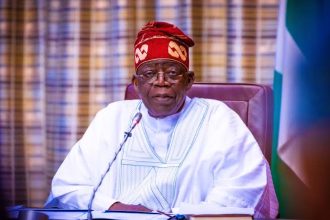President Bola Tinubu’s recent decisions to remove fuel subsidies has come under intense scrutiny from economic experts and former Deputy Governor of the Central Bank of Nigeria (CBN), Kingsley Moghalu, who argue that while the policies may have been necessary, their execution has been deeply flawed
Professor Kingsley Moghalu, former Deputy Governor of the Central Bank of Nigeria (CBN), criticized the implementation of these reforms, stating that they were undertaken hastily and without adequate planning for their repercussions on the Nigerian populace.
According to Moghalu, the abrupt removal of fuel subsidies and the floating of the naira were carried out without accompanying measures to mitigate their impact on citizens.
“The petrol subsidy and foreign exchange subsidy were unsustainable,” Moghalu remarked. “However, the problem lies in the flawed execution of their removal—failing to plan for consequences, lacking alternative transport solutions, and floating the exchange rate without prior monetary tightening and a substantive CBN governor with a comprehensive strategy.”
Moghalu further emphasized the importance of competent policy conception and execution, noting the challenges Nigeria faces in framing and implementing evidence-based public policies.
He maintained that while reforms may be necessary, the manner in which they are executed significantly impacts their effectiveness and public perception.
Criticism of President Tinubu’s policies extended beyond Moghalu’s remarks. Economists, such as Olayiwola Adejare Lawal, highlighted concerns regarding Nigeria’s import-dependent economy and the potential adverse effects of removing fuel subsidies and supporting naira devaluation.
Lawal argued that such decisions run counter to Nigeria’s economic realities and could detrimentally affect economic growth.
In response to these criticisms, Moghalu proposed that effective policies to stimulate productivity and exports should have been established before implementing fuel subsidy removal and naira devaluation.
He also criticized the lack of shared sacrifice from Nigeria’s political leaders, who, he asserted, failed to bear the burden of poorly executed reforms while asking citizens to endure the consequences.



